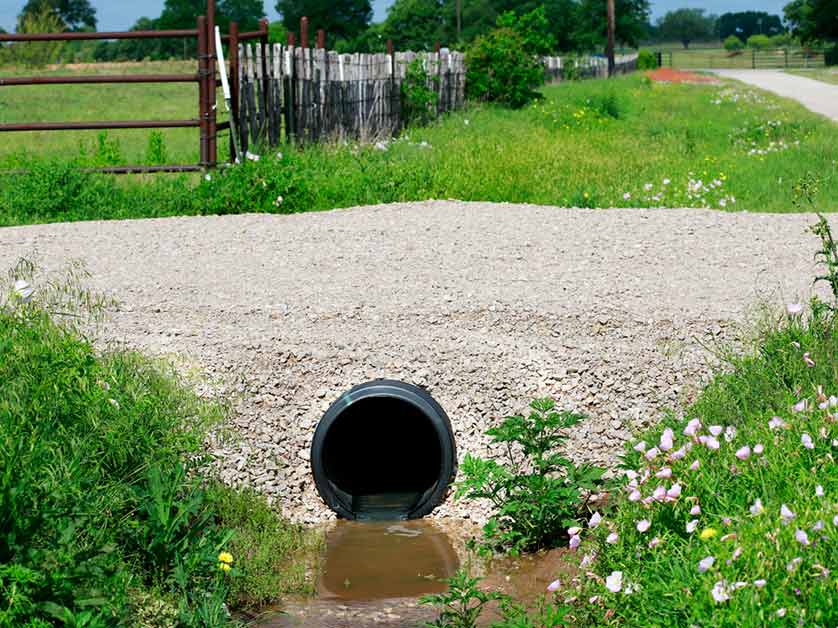
From the bustling urban regions to the serene landscapes, the function and design of culverts contribute significantly to the city’s infrastructure and ecological balance. Bonness, a trusted name among local asphalt paving contractors, delves into what culverts are, why they’re so important, and the many considerations that go into their design and installation.
Understanding Culverts
Culverts are essentially tunnels that allow water to flow under roads, railways, and other forms of infrastructure instead of over them. This simple yet crucial function prevents road flooding and preserves the integrity of transportation systems. In places where sudden storms can lead to quick accumulations of water, properly designed culverts are indispensable for maintaining safe and clear travel pathways.
The Importance of Culverts in Urban Planning and Ecology
Culverts play a multi-faceted role in both urban planning and ecological sustainability. They are pivotal in preventing flooding, which can cause significant economic loss and endanger lives. Moreover, their design and implementation can impact local ecosystems. Well-designed culvert systems allow for the safe passage of aquatic life, contributing to the preservation of local biodiversity and maintaining natural water flow patterns. Such considerations are vital in protecting the delicate balance of ecosystems in coastal regions.
Types of Culverts and Their Applications
The choice of culvert type depends on a variety of factors, including the volume of water to be drained, the site’s geological characteristics, and environmental considerations. The following culvert types are commonly utilized:
- Box Culverts. These are preferred in urban settings or areas with limited overhead space. Their strong, rectangular shape makes them ideal for heavy traffic loads and asphalt or concrete driveway construction.
- Pipe Culverts. These are widely used due to their cost-effectiveness and ease of installation. Pipe culverts come in various materials, including PVC, galvanized steel, and concrete, making them versatile for different environmental conditions and load requirements.
- Arch Culverts. Chosen for their aesthetic appeal and functionality, arch culverts are often used in parks and natural settings within Naples to maintain the area’s visual integrity while providing effective water drainage.
Key Considerations Before Installation
Successful culvert installation requires thorough planning and consideration of several factors. Hydrology studies are crucial to understanding the volume and pace of water flow. The terrain and soil type of the Naples area influence the choice of culvert, as sandy soils may require different considerations than more stable ground types. Moreover, environmental impacts must be assessed to ensure culvert designs do not adversely affect local wildlife or disrupt natural waterways.
Contact Us Today!
In understanding the nuances of culverts, residents, and professionals in Naples can appreciate the complexity and necessity of these structures beneath the surface, quietly ensuring the safety and functionality of our roads and natural habitats. Contact Bonness at (239) 597-6221 today to learn more about culverts and their features. You can also visit our website if you need trusted professionals to address your asphalt and concrete paving needs.
